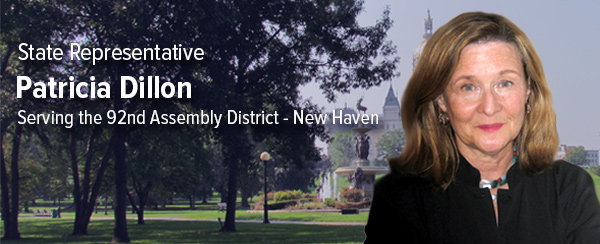
December 26, 2007
RELL MOST PROUD OF BOOSTING SCHOOL FUNDING IN 2007
Proposal to cap property tax increases wasn’t successful, but she promises to try again
By Gregory B. Hladky, Capitol Bureau Chief
HARTFORD — Throughout her career as governor, Republican M. Jodi Rell has delighted in taking trademark Democratic issues and making them her own. She did it again in 2007, and seems likely to continue the habit in 2008.
It’s a pattern that has brought Rell considerable success in the past, from new programs to improve mass transit to campaign finance reform. But the governor said in a recent interview that her record over the last year included one major win and one major loss.
Traditional Democratic issues Rell targeted in 2007 were increasing state aid for local education and property tax reform.
Rell said her top achievement for the year was approval of $441 million in new state school funding, the largest single increase in the state’s history. Rell was so intent on getting the increase that she even proposed a state income tax increase, something she later discarded as unnecessary given the state’s fiscal situation.
The year’s biggest failure, according to Rell, was that she “didn’t get the property tax cap I wanted.”
Rell said the primary reason the proposal failed was opposition from municipal leaders fearful a cap would force painful spending cuts in the future.
However, Rell clearly hasn’t accepted that defeat as permanent and said she would be ready to try again in 2008. “I’d like to see it in the budget,” she said.
“Connecticut will get there sooner or later … and I’d love to be the one to get us there,” she said.
Rell said it’s become obvious local property taxes have become a crushing burden on taxpayers and insisted, “We’re going to have to do something.”
At the same time, Rell said she recognizes opposition from many Democrats and municipal organizations such as the Connecticut Conference of Municipalities will make it difficult to push such a reform through.
CCM last week issued a new report warning that Rell’s property tax cap proposal would “have dire adverse consequences for towns and cities.” CCM officials argue a state-imposed cap would take local control away from taxpayers, possible future cuts in state aid to municipalities could leave communities in desperate fiscal straights, and a strict cap on revenue wouldn’t take into account ever-rising costs of government.
Rell said she doesn’t understand why so many Democrats, who for years demanded real property tax reform, refuse to consider a property tax cap. She suggested part of the reason was resentment that it had been her idea.
“If I propose it, it’s got to be wrong,” Rell said with a shrug.
The governor insisted she is ready to compromise on exactly what type of cap on local property taxes there should be in the state.
Her original plan was for a 3 percent cap on local property tax increases in any one year, except in extraordinary circumstances.
The proposed cap could be exceeded by a two-thirds vote of a local legislative body and majority approval in a local referendum. A dramatic rise in a municipality’s grand list also would allow for additional tax increases under Rell’s proposal.
Rell said she is willing to consider other types of caps, such as one being proposed by state Rep. Patricia Dillon, D-New Haven. Dillon’s plan would cap a family’s local property tax at no more than 5 percent of its annual income.
The property tax cap wasn’t the only controversial Rell plan that failed last year and could show up again in 2008.
Rell said her proposal to eliminate municipal taxes on motor vehicles was rejected largely because of municipal fears that the state might in the future renege on promises to compensate cities and towns for the lost revenue. “I don’t blame them,” Rell said, saying the state has in the past failed at time to keep its funding commitments to municipalities.
Another consistent theme for Rell has been her crusade against what she has called Connecticut’s “culture of corruption,” and that also appears likely continue in the coming year.
Rell said that, if she were to have to pick one reform that would provide the greatest deterrence to corruption on the part of public officials, it would be passage of legislation to deny elected and appointed officials public pensions when they are convicted of felony for using their office for corrupt purposes.
“I think this will be the year it will pass,” said Rell, pointing to bipartisan support for such legislation.
Despite her past success at latching on to and running with Democratic issues, Rell maintained it isn’t something she specifically plans.
“Some of my best friends are Democrats,” Rell joked. “I don’t think of them (major initiatives she’s proposed in the past) in terms of maneuvers or showdowns.”
Rell may not view them that way, but there are certain to be a number of frustrated Democratic legislative leaders wondering right now what political surprise she’s planning for the February start of the 2008 General Assembly session.
Gregory B. Hladky can be contacted at ghladky@nhregister.com or (860) 524-0719.